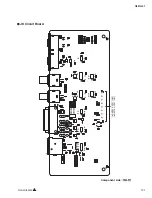
Wet cell batteries are the original type of rechargeable battery and come in two styles, serviceable and maintenance free.
Wet cell batteries typically require special attention to ventilation as well as periodic maintenance but are the lowest cost.
The gel cell and AGM battery are sealed batteries that cost more but store very well and do not tend to sulfate or degrade
as easily as a wet cell. Gel or AGM batteries are the safest lead acid batteries you can use.
Battery Capacity
Battery capacity is a function of the ambient temperature and the rate
of discharge. Depending upon the specific battery, a battery operating
at –30 °C can have as much as 40 percent less capacity than a battery
operating at 20 °C. Choose enough battery capacity based on your
geographical location.
A larger capacity battery typically lasts longer for a given solar
application because lead-acid batteries do not like deep cycling
(discharging a large percentage of its capacity). Depending upon the
battery, a battery discharging only 30 percent of its capacity before
recharging will have approximately 1100 charge/discharge cycles. The
same battery discharging 50 percent of its capacity will have
approximately 500 charge/discharge cycles. Discharging 100 percent
leaves the battery with only 200 charge/discharge cycles.
Batteries degrade over time based on discharge/charge cycles and
environmental conditions. Always monitor the battery system to obtain
the best performance of the solar powered system.
Use this as a guide to the approximate state of
charge and in determining when to apply
conservation measures.
Average Voltage Readings Relative to Battery
Change
State of Charge (%)
Open Circuit Voltage
100
13.0 or higher
75
12.6
50
12.1
25
11.66
0
11.4 or less
Solar Panel
Banner solar panels come in two common sizes for the DXM Modbus Slave: 5 Watt and 20 Watt. Both panels are designed
to work with the DXM Modbus Slave but provide different charging characteristics. Use the 5 watt panel for light duty
operation and use the 20 watt panel when you require greater charging capabilities.
Solar Panel
Voltage
Current
Typical DXM Configurations
5 Watt
17 V
0.29 A
DXM slave controller, ISM radio, I/O base board
20 Watt
21 V
1 A
DXM Controller with ISM radio and Cellular modem
Photovoltaic panels are very sensitive to shading. Unlike solar thermal panels, PV solar panels cannot tolerate shading from
a branch of a leafless tree or small amounts of snow in the corners of the panel. Because all cells are connected in a series
string, the weakest cell will bring down the other cells' power level.
Good quality solar panels will not degrade much from year to year, typically less than 1 percent .
Solar Panel Mounting
To capture the maximum amount of solar radiation throughout the year, mount a fixed solar panel to optimize the sun's
energy throughout the year. For the northern hemisphere, face the panel true south. For the southern hemisphere, face the
panel true north. If you are using a compass to orientate the panels, compensate for the difference between true north and
magnetic north. Magnetic declination varies across the globe.
A solar panel's average tilt from horizontal is at an angle equal to the latitude of the site location. For optimum performance,
adjust the tilt by plus 15 degrees in the winter or minus 15 degrees in the summer. For a fixed panel with a consistent power
requirement throughout the year, adjust the tilt angle to optimize for the winter months: latitude plus 15 degrees. Although in
the summer months the angle may not be the most efficient, there are more hours of solar energy available.
For sites with snow in the winter months, the increased angle helps to shed snow. A solar panel covered in snow produces
little or no power.
5.3.3 Recommended Solar Configurations
These solar panel and battery combinations assume direct sunlight for two to three hours a day. Solar insolation maps
provide approximate sun energy for various locations. The depth of battery discharge is assumed to be 50 percent.
DXM150-Sx Wireless Modbus Slave
www.bannerengineering.com - Tel: +1.763.544.3164
27
















































